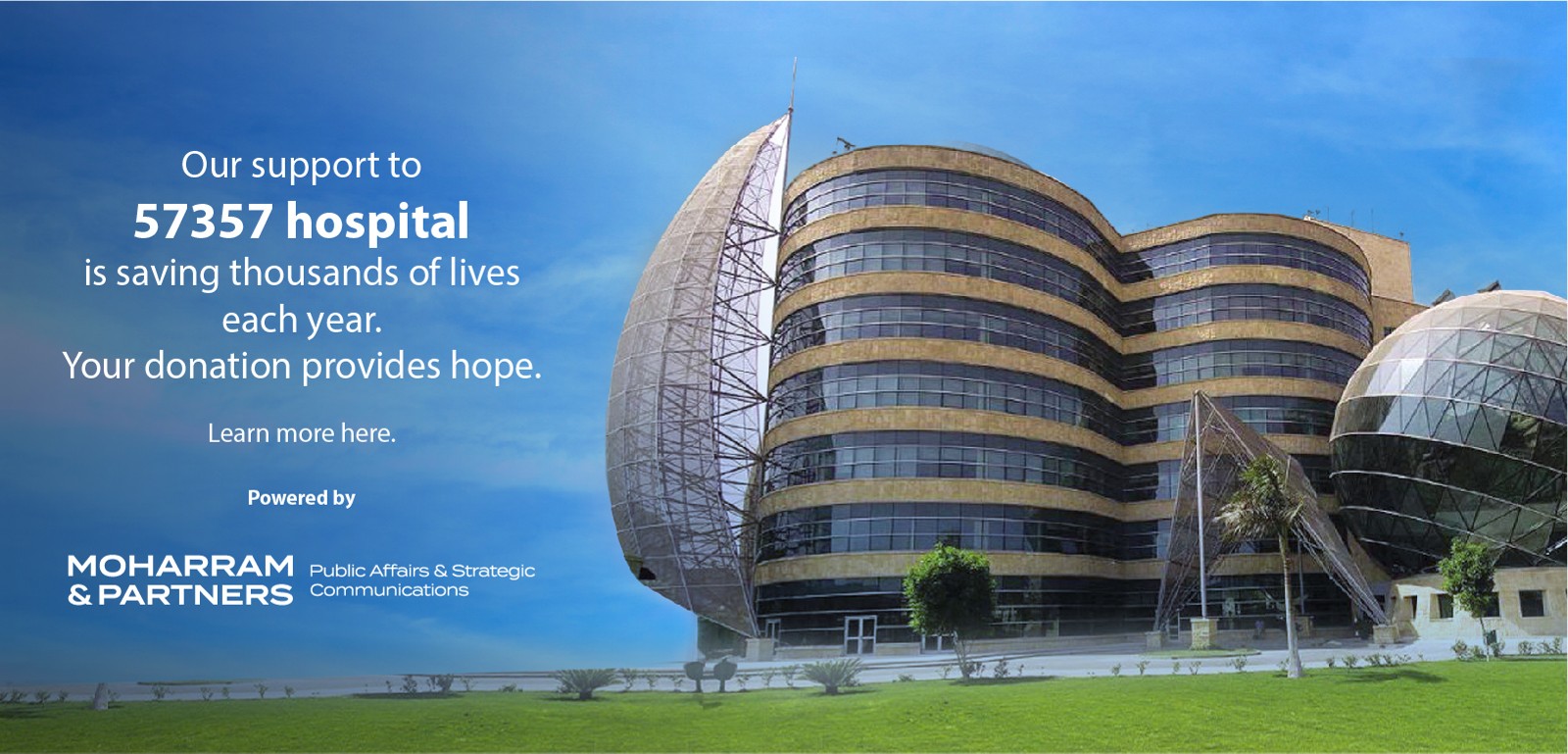- LSE-listed Centamin wants the Sukari lawsuit thrown out after Supreme Constitutional Court ruled against third-party challenges to contracts. (Mining)
- Nine local climate startups are getting British help to secure financing. (Green Economy)
- EFG Hermes could exit Pakistan, Jordan amid what WEF is calling the global “polycrisis.” (What We’re Tracking Today)
- What to look out for at Davos, day three. (What We’re Tracking Today)
- Tenth of Ramadan dry port tender pushed as bidders adapt to floating EGP. (Infrastructure)
- New regs mitigate credit risk for ins. companies. (Regulation Watch)
- Fitch Ratings has warm words on the resilience of local banks to the EGP deval. (Last Night’s Talk Shows)
- Vodacom snaps up a smidge more of Vodafone Egypt from minority shareholders. (Also On Our Radar)
- The ECB could be about to slow its roll + A 4Q to forget for Wall Street majors. (Planet Finance)
- Contractors want more out of the new compensation law. (Hardhat)

Wednesday, 18 January 2023
AM — How long will 25% CDs last? PLUS: EFG Hermes could exit Pakistan, Jordan
TL;DR
WHAT WE’RE TRACKING TODAY
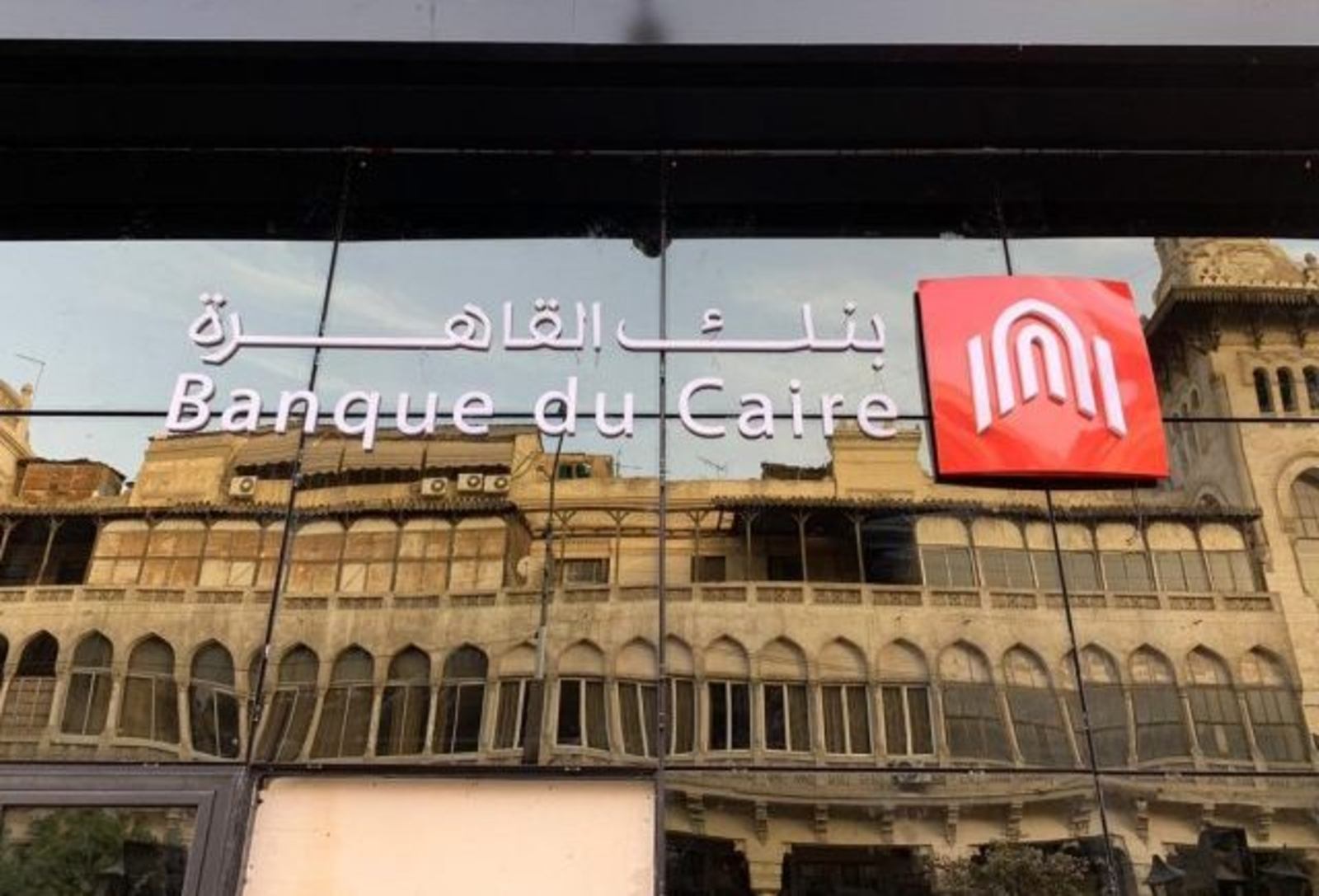
Good morning, wonderful people. The EGP continues to trade actively on the back of both local savers de-dollarizing and portfolio inflows from international institutional investors.
THE BIG QUESTION here at home: How long will high-yield CDs stay on the market?
State-owned Banque du Caire is now offering a one-year, 25% certificate of deposit (CD), the bank’s website shows. As with the high-yield CDs on offer at the National Bank of Egypt and Banque Misr, subscribers can opt for a one-time payment of 25% when their CDs mature or go for a monthly payout at a reduced annualized rate of 22.5%, the statement reads. The minimum buy-in is EGP 1k and only individuals can buy.
Scramble for deposits: BdC follows other institutions including CIB and QNB Al Ahli (which now have 22.5% CDs) in offering a high-yield product to stem outflows of deposits to NBE and BM.
Don’t expect the high-yield CDs to be around forever, bankers are warning. Banque Misr Chairman Mohamed El Etreby says the CDs at NBE and BM could be withdrawn in days — and by the end of the month at the latest. He was speaking in an interview with Kelma Akhira’s Lamees El Hadidi last night (watch, runtime, 10:43.) CIB’s acting retail banking CEO, Rashwan Hammady, also spoke with El Hadidi about the current CD craze (watch, runtime: 4:25).
The high-yield CDs at Banque Misr and the NBE have attracted a combined EGP 335 bn as of yesterday, including EGP 215 bn at the NBE and EGP 120 bn at Banque Misr, Banque El Etreby told Lamees.
Can we hit 30 mn tourists annually by 2028? The government wants to see Egypt welcome 30 mn annually by 2028, Tourism Minister Ahmed Issa said at AmCham’s monthly luncheon this week, according to Youm7. The Madbouly government will launch a national tourism strategy this quarter with that goal in mind. Some 13 mn tourists visited Egypt in 2019.
YES, AND… Tourism is a key source of hard currency for the country — and it’s not just a visitor numbers game. What we need to do is find ways to increase the average spend per tourist by improving our product and positioning. We recently spoke with Somabay CEO Ibrahim El Missiri and Travco Holidays General Manager Moataz Sedky about just this topic in our CEO poll on FDI and exports.
THE BIG STORY ABROAD-
The global “polycrisis” that has the chattering class in Davos fretting has hit close to home. The odds that 2023 will be a challenging year is the headline story at the World Economic Forum in Davos — with IMF boss Kristalina Georgieva telling CNBC yesterday that things will get worse before they get better. Growth will continue to slow throughout 2023 and bottom out by the end of the year before we move on to better things in 2024, she said, as we noted in yesterday’s EnterprisePM.
THE HOMETOWN ANGLE- Frontier and emerging markets champion EFG Hermes says the global climate played heavily in its decision to explore a pullback from Pakistan, Jordan and (potentially) one other market. The high-profile EGX-listed institution is looking to “simplify its operations” and double-down on its core strengths as it aims to improve its return on equity and “better equip itself for the unfavorable global economic environment,” it said yesterday afternoon in a regulatory filing (pdf).
Pakistan and Jordan account for no more than rounding errors on EFG Hermes’ income statement — they accounted for less than 1% of revenues in both 9M 2022 and FY 2021.
Both potential exits are at early stages: EFG Hermes says it has received a binding offer for its operations in Jordan and an expression of interest in Pakistan.
Nothing else on the auction block: “We don’t expect to exit any other markets (other than the aforementioned third market that is in advanced negotiations stage),” the firm said in its statement, though it noted that 2023 could see “additional efficiency-enhancing moves” as it continues to review operations.
MEANWHILE- It’s day three in Davos. Running under the headline “Cooperation in a Fragmented World,” today’s sessions at the World Economic Forum kick off at 7:15am CLT and will run until 7pm. Here some of the key sessions to keep an eye out for:
- A panel on Saudi Arabia’s economic transformation feat. IMF Managing Director Kristalina Georgieva and several high-ranking Saudi officials including Finance Minister Mohammed Al Jadaan at 10am;
- An address by Moroccan head of government Aziz Akhannouch at 11:45am;
- An address by UN Secretary-General António Guterres at 12:15pm;
- An address by German Chancellor Olaf Scholz at 4:45pm;
- An address by Ukrainian President Volodymyr Zelensky at 6pm;
- A session titled Restoring Security and Peace feat. NATO secretary general Jens Stoltenberg at 6:15pm;
- A session on the Middle East feat. the Saudi and Iraqi foreign ministers and Jordan’s finance minister at 6:30pm.
And from our very own: International Cooperation Minister Rania Al Mashat will return to the Davos stage today at 11:15am for a session focused on the green transition. She’ll also be back on Friday for a session on development finance. Planning Minister Hala El Said will join her Saudi counterpart and Emirati Economy minister in a session titled Between Liquidity and Fragility: Reforming in MENA tomorrow.
ICYMI- What went down on day two?
Egypt is among 45 partners pledging to help unlock the USD 3 tn of financing needed for the world to reach net zero by 2050 through the Giving to Amplify Earth Action initiative, the WEF said in a statement. “Egypt will work closely with the World Economic Forum to build effective and impactful philanthropic public private partnerships, and promote the role of the prominent ‘P’ – Philanthropy,” International Cooperation Minister Rania Al Mashat said.
Al Mashat also joined US climate chief John Kerry, UN climate finance envoy Mark Carney, WEF President Borge Brende and other climate experts to discuss the role of public- and private-sector philanthropy in raising climate finance (watch, runtime: 47:30).
DATA POINT- Our annual water deficit has widened to around 30-35 bn cubic meters, forcing us to import foods that require high water consumption, Water and Irrigation Minister Hany Sewilam told MPs yesterday, without giving a comparative figure. The ministry manages to recycle some 21 bcm of water annually, he added, according to a ministry statement. For context, the Nile River provides around 55.5 bcm annually, with around another 3.5 bcm coming from groundwater and rainfall. The state needs an additional 8 bcm to carry out its massive land reclamation project in the Nile Delta, Sewilam added.
Don’t blame GERD: The third filling of Ethiopia’s upstream mega dam project has not yet impacted Nile river flows thanks to last year’s high flood, Sewilam said, though he said it would have an impact in future and the government is monitoring the situation “on a daily basis.”
ON A ROLL- The national handball team beat the USA 35:16 yesterday for a clean sweep of victories in all three of their group matches in the first round of the International Handball Federation’s Men’s World Championship in Poland and Sweden. The national team will now face Belgium at 5pm CLT on Thursday in Malmo, in their first match of the main group round.
HAPPENING TODAY-
Egypt + Jordan to attend GCC summit in Abu Dhabi today: President Abdel Fattah El Sisi and Jordan’s King Abdullah II will today meet with leaders of Gulf Cooperation Council countries in the UAE, Oman News Agency reports, citing a statement by Omani authorities. The meeting comes a day after a summit between the Egyptian and Jordanian leaders and Palestinian President Mahmoud Abbas, amid a period of heightened tension in the Israeli-Palestinian conflict following the ascension of Israel’s new far-right government. More on that in our Diplomacy section, below.
CIRCLE YOUR CALENDAR-
The House of Representatives has adjourned until Sunday, 29 January after three days of plenary sessions.
It’s that time of year again: The Cairo International Book Fair will open its doors to the public at the International Exhibition Center in New Cairo on 26 January, according to Youm7. The event, which runs until 6 February, is expected to draw mns of visitors during the two weeks. The book fair has launched a mobile app for the event (get the Android version here.) Meanwhile, Ahram Online is out with a feature on how soaring paper prices have put a squeeze on the publishing industry ahead of the event.
Check out our full calendar on the web for a comprehensive listing of upcoming news events, national holidays and news triggers.

*** It’s Hardhat day — your weekly briefing of all things infrastructure in Egypt: Enterprise’s industry vertical focuses each Wednesday on infrastructure, covering everything from energy, water, transportation, and urban development, as well as social infrastructure such as health and education.
In today’s issue: Will new amendments to the Contractors Compensation Act be enough to help builders out of a bind?
Somabay brings out the best in majestic natural elements where raw beauty and endless activities reign supreme. Immerse yourself into a picturesque getaway all year long. This is simply Somabay. For more information, call 16390 or visit www.somabay.com.
MINING
Centamin to request gold mine lawsuit be rejected after Supreme Court ruling on state-investor contracts

LSE-listed gold miner Centamin will file to have a 2011 legal challenge against its Sukari mine thrown out following the Supreme Constitutional Court’s (SCC) decision last week to uphold a law that bars third-party lawsuits against state-investor contracts, the company said in a statement Monday.
ICYMI- The court last week upheld the constitutionality of the Appeals Against State Contracts Act, a 2014 bill that prevents third-parties from mounting legal challenges against contracts signed between the government and investors. The Administrative Court had asked the Supreme Constitutional Court to rule on the constitutionality of the act as part of a years-old case brought by employees of the Nubaria Seed Production Company (NUBASEED) against the government's decision to privatize the company. The court’s decision means the 2014 bill will now apply to all active and future cases.
An 11-year legal challenge: The Sukari mine concession — an agreement between the Egyptian government, Centamin's Egyptian subsidiary Pharaoh Gold Mines (PGM), and the Egyptian Mineral Resource Authority (EMRA) — was challenged in 2011 by a third-party individual. A year later, the Supreme Administrative Court held that even though the agreement itself was valid, EMRA and PGM hadn’t received the necessary approvals for the exploitation lease. PGS launched an appeal but the final decision has been pending the SCC’s ruling on the Appeals Against State Contracts Act.
What they said: “[Saturday’s] judgment on the constitutionality of Egyptian Law No. 32 is most
welcomed. We are delighted to now be in a position to apply to set aside the 2011 third-party challenge to the validity of the Exploitation Licence issued under the Sukari Concession Agreement,” said Centamin CEO Martin Horgan.
What’s next: Centamin will “imminently”' submit an application requesting the resumption of its appeal proceedings and for the original case to be rejected “in its entirety in accordance with the provisions of Law 32,” the statement reads.
GREEN ECONOMY
Green startups get a boost from our friends in the UK

Nine green projects from across Egypt have been chosen to join the Climate Finance Accelerator (CFA) Egypt’s inaugural program, the UK government-backed initiative announced in a press release (pdf) yesterday. Almost 50 projects applied to join the program, with the chosen nine receiving technical assistance to help them attract finance from international investors.
The nine projects operate in renewable energy, waste, blue economy, agriculture and manufacturing. They were chosen according to the five criteria proposed by the CFA. The accelerator will work with the companies on capacity-building before they meet with investors and financial institutions at an April workshop to network and pitch their projects.
The CFA Egypt projects are:
- Al Dawara: Aims to create plant-based single-use products.
- Creative Power Solutions: A thermal solar panels manufacturer.
- Farmtopia: Automates farming processes such as irrigation using artificial intelligence and the Internet of Things.
- Green Fashion: Produces eco-friendly fashion.
- IRSC Renewable Energy Solutions: Provides agricultural and financial support to small-scale farmers.
- ReNile: Uses advanced monitoring technologies to promote precision farming.
- Tile Green: Produces eco-friendly building materials from plastic waste.
- Zr3i: A digital agriculture platform focused on precision farming.
REFRESHER- Announced prior to COP27 in November, the CFA is a GBP 10 mn, four-year technical assistance program funded by the UK government to build a pipeline of bankable low carbon projects in eight middle-income countries, helping them achieve national climate plans. South Africa-based consultancy firm Genesis Analytics and Egypt-based Acumen Consulting are working with the CFA on the local program.
The CFA will also support the Climate Resilience Fund, a USD 25 mn Middle East and Africa-focused VC fund that will provide pre-seed funding to startups working in sustainable agriculture. The Egypt-based fund will deploy half of its capital in Egyptian startups and the other half will be split between the Middle East and Africa.
M&A WATCH
STC will have to cough up more for Giza Systems

B Investments just upped its Giza Systems valuation: BPE Partners’ B Investments has increased Giza Systems’ valuation by 7.6% to USD 128 mn after reviewing its working capital and cash balances, it said in an EGX disclosure (pdf) yesterday.
ICYMI- B Investments agreed to sell its 44.7% stake in Giza Systems to Solutions by STC last October at an initial valuation of USD 119 mn. This is part of a larger transaction, in which Solutions by STC is acquiring 88.2% of the company.
INFRASTRUCTURE
Tenth of Ramadan dry port tender pushed as bidders adapt to floating EGP

Tenth of Ramadan dry port tender bids pushed to April: Four consortium bidders for the Tenth of Ramadan dry port project will submit their financial and technical proposals on 30 April, Atter Hannoura, the director of the Finance Ministry's PPP unit, told us, confirming a report from Al Borsa.
Why the delay? We were previously expecting the project to be awarded in 1Q 2023 but the state wants to give bidders the chance to readjust their financial reports in response to ongoing fluctuations in the exchange rate, Hannoura told us.
The bidders include a consortium of Elsewedy Electric with French firms CEVA Logistics and CMA CGM; Orascom Construction and Abu Dhabi Ports Group; a French consortium including Bolloré Logistics and Meridiam; and a consortium led by MSC.
Costs to rise: The port’s construction was initially expected to cost some EGP 3.5 bn, Hannoura said, but that number is expected to increase because of the depreciation of the EGP against the greenback.
REGULATION WATCH
New FRA regulations aim to help insulate ins. companies from credit risk of borrowers
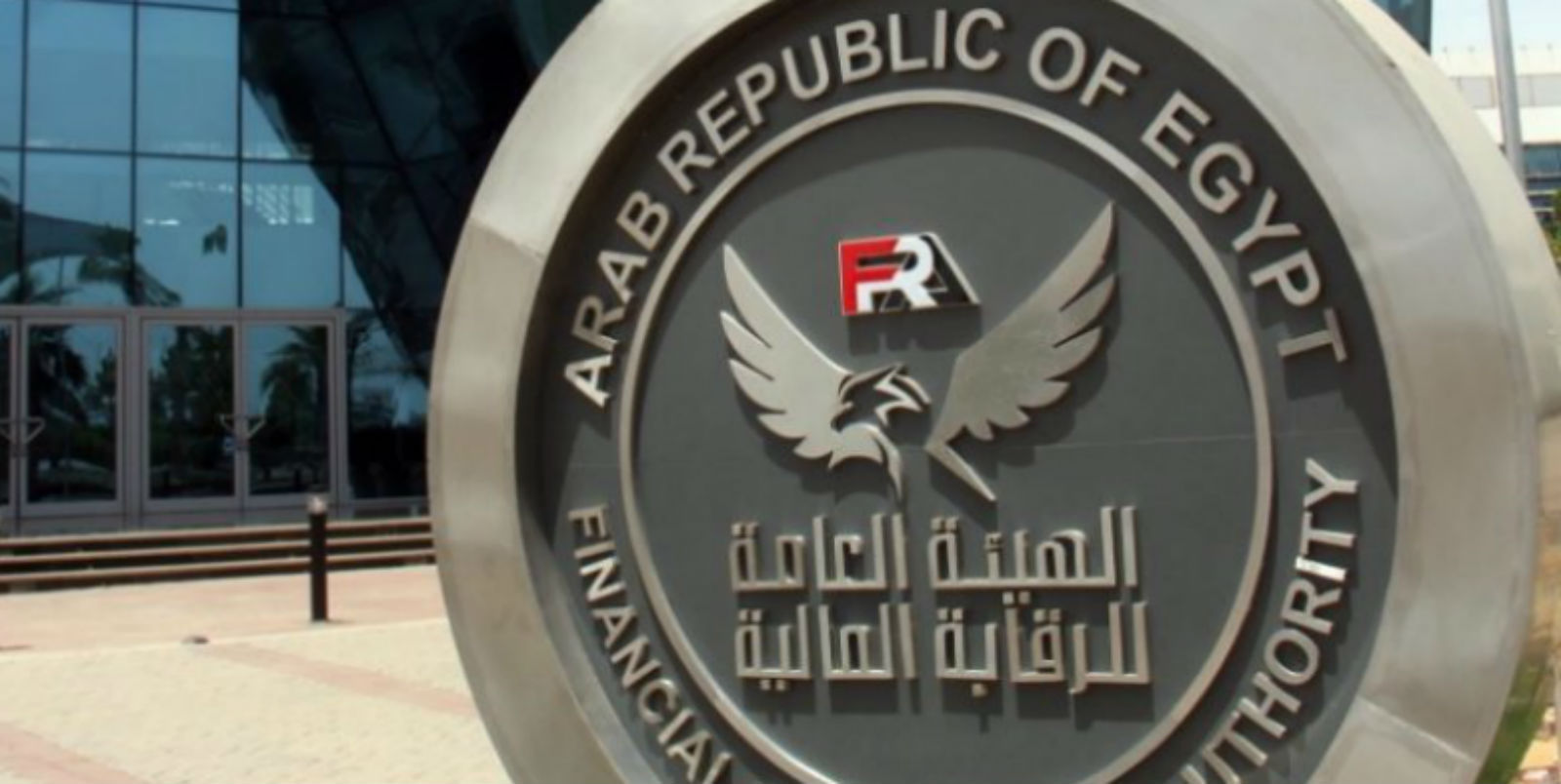
FRA hands down new regulations controlling ins. against credit risks: The Financial Regulatory Authority (FRA) has issued new regulations designed to mitigate credit risk for ins. companies, it said in a statement on Monday. The amendments aim to encourage lenders to run background checks on borrowers before granting them loans and reduce ins. companies’ exposure to credit risk.
Transferring risk: Under the regulations, lenders will be required to take a 25% haircut on any debts owed by a borrower who defaults. This will reduce the insurer’s risk, leaving them responsible for paying only 75% of the unpaid debt.
Ins. companies will not be able to insure borrowers against credit risk except after the following:
- Preparing independent financial accounts for credit ins. and separating them from accident ins;
- Looking into the borrower’s credit score before insuring them;
- Distributing risk by linking up with more than one FRA-approved reins. company.
Better regulations to come: The Ins. Federation of Egypt will work to issue unified regulations for credit ins. issuers. The rules will give ins. providers the right to cancel or decline coverage in case the lender violates the policies implemented before lending, loan reviews, or credit approval, or if the lender amends its policies mid-loan with the ins. firm’s written approval.
A blacklist for defaulters: The regulations also entail establishing an online platform that includes a list of borrowers who have defaulted on their loans, which would be distributed among all ins. providers to check with before onboarding new credit ins. clients.
REMEMBER- Back in late 2019, the FRA introduced mandatory life ins. in micro- and SME finance, forcing microfinance and SME finance players to provide ins. coverage for their borrowers. The contracts pay out an amount equivalent to the loans in the event of death or severe disability of borrowers, and lenders are not allowed to mark up the cost of the coverage.
LAST NIGHT’S TALK SHOWS

It was banking and bread on the airwaves last night: The attention of the talking heads was captured by a new report from Fitch Ratings with positive things to say about the resilience of our banking sector in the face of the EGP devaluation, as well as more details on the subsidized bread scheme set to launch in pilot form today.
Our banking sector can withstand the EGP deval, according to Fitch Ratings: “Egyptian banks’ regulatory capital ratios can withstand further EGP depreciation as they are supported by healthy internal capital generation,” according to a report out yesterday from Fitch Ratings. “Even further sharp currency falls should not directly trigger rating downgrades,” the report reads.
Our large private-sector banks are better equipped to sustain the currency devaluation than the sector’s two largest public banks, the National Bank of Egypt and Banque Misr, the report adds, citing private banks’ “higher regulatory capital buffers.” The 25% CDs will “squeeze NBE’s and Banque Misr’s net interest margins (NIMs),” while private-sector banks will be able to make up for deposit outflows thanks to the CDs through higher yields on sovereign securities, Fitch says.
But we’re not out of the woods yet: The EGP “may remain under pressure in 2023” thanks to the USD 5.4 bn backlog at ports (equivalent to c. 16% of our FX reserves) and external funding needs of USD 19 bn (equivalent to c, 60% of our FX reserves), the ratings agency writes. “It remains to be seen whether the Central Bank of Egypt will let the exchange rate and interest rates adjust sufficiently to attract new portfolio flows,” it adds. Al Hayah Al Youm has more coverage (watch, runtime: 18:07)
Local banking experts agree: It’s true that our banking sector can withstand further EGP deprecation, especially after the 2020 Banking Act increased the mandatory capital requirement for banks to EGP 5 bn, SAIB Bank Chairman Tarek El Khouly told Masaa DMC’s Ramy Radwan in a phone call (watch, runtime: 9:16.) But he disputed the claim that private banks are more resilient, noting that the NBE and Banque Misr own around a 50-60% market share.
AND- Any prepaid card works for subsidized bread purchases: People can use any existing or new prepaid card issued by Egypt Post to buy subsidized bread, Egypt Post’s Hatem Al Souly told Kelma Akhira’s Lamees El Hadidi in a phone call (watch, runtime: 7:27.) The cards can be charged with any amount of money at ATMs or post offices without additional fees, said El Souly, adding that there are currently around 16 mn cards in the market.
REMEMBER- People not covered by the ration card system will be able to buy bread from bakeries at cost in a trial of the new scheme that should kick off today.
EGYPT IN THE NEWS
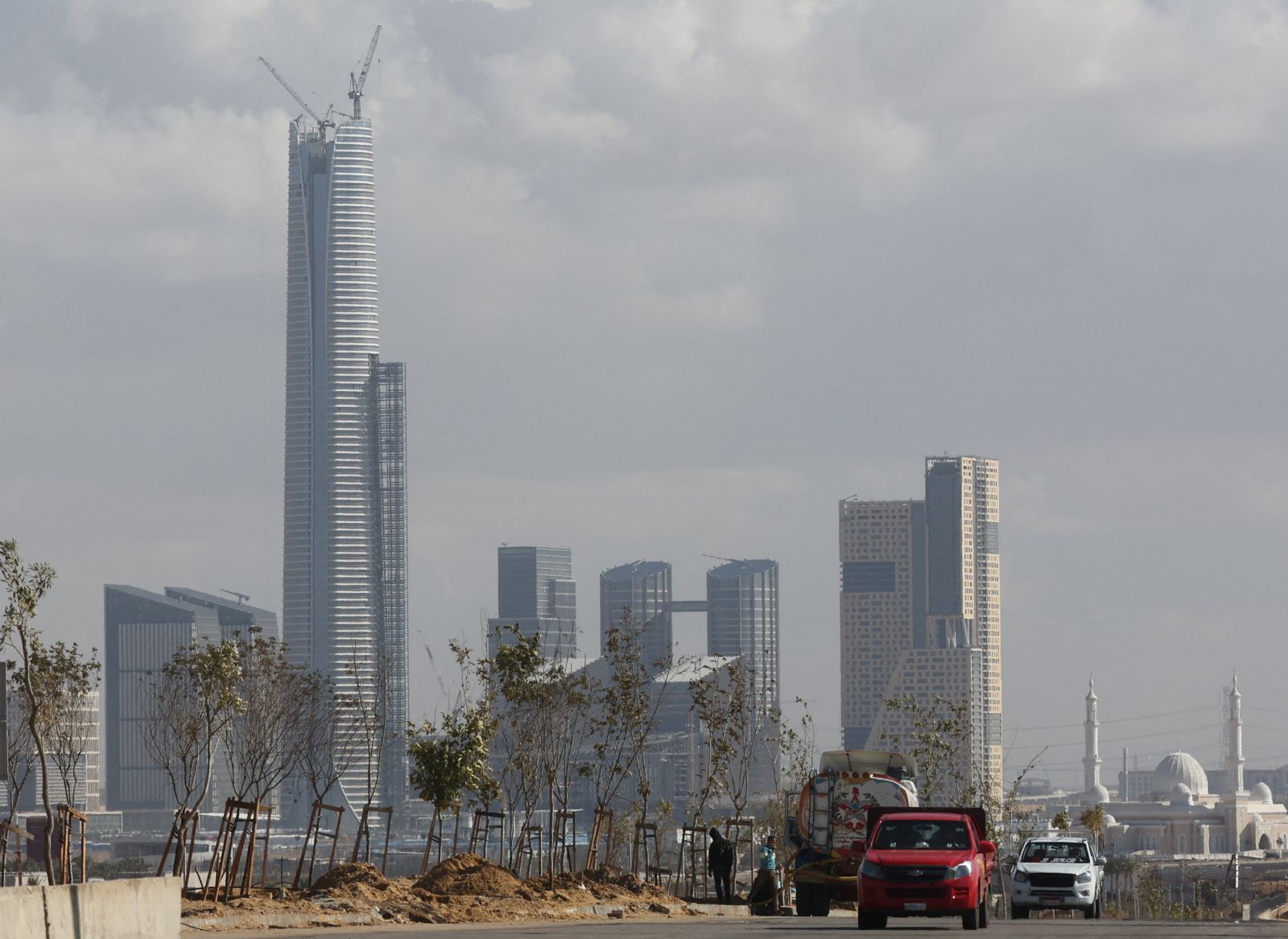
It’s an eerily quiet morning for mentions of Egypt in the international press after weeks of breathless coverage of the fluctuations in the EGP exchange rate.
ON THE BUSINESS FRONT- The Financial Times’ editorial board is the latest to call on allies of Egypt to pressure the state to reduce its involvement in the economy as per our loan agreement with the IMF.
MEANWHILE- Activist Ghadeer Eldamaty has published a book compiling Egyptian women’s experiences with abortion. (DW)
ALSO ON OUR RADAR
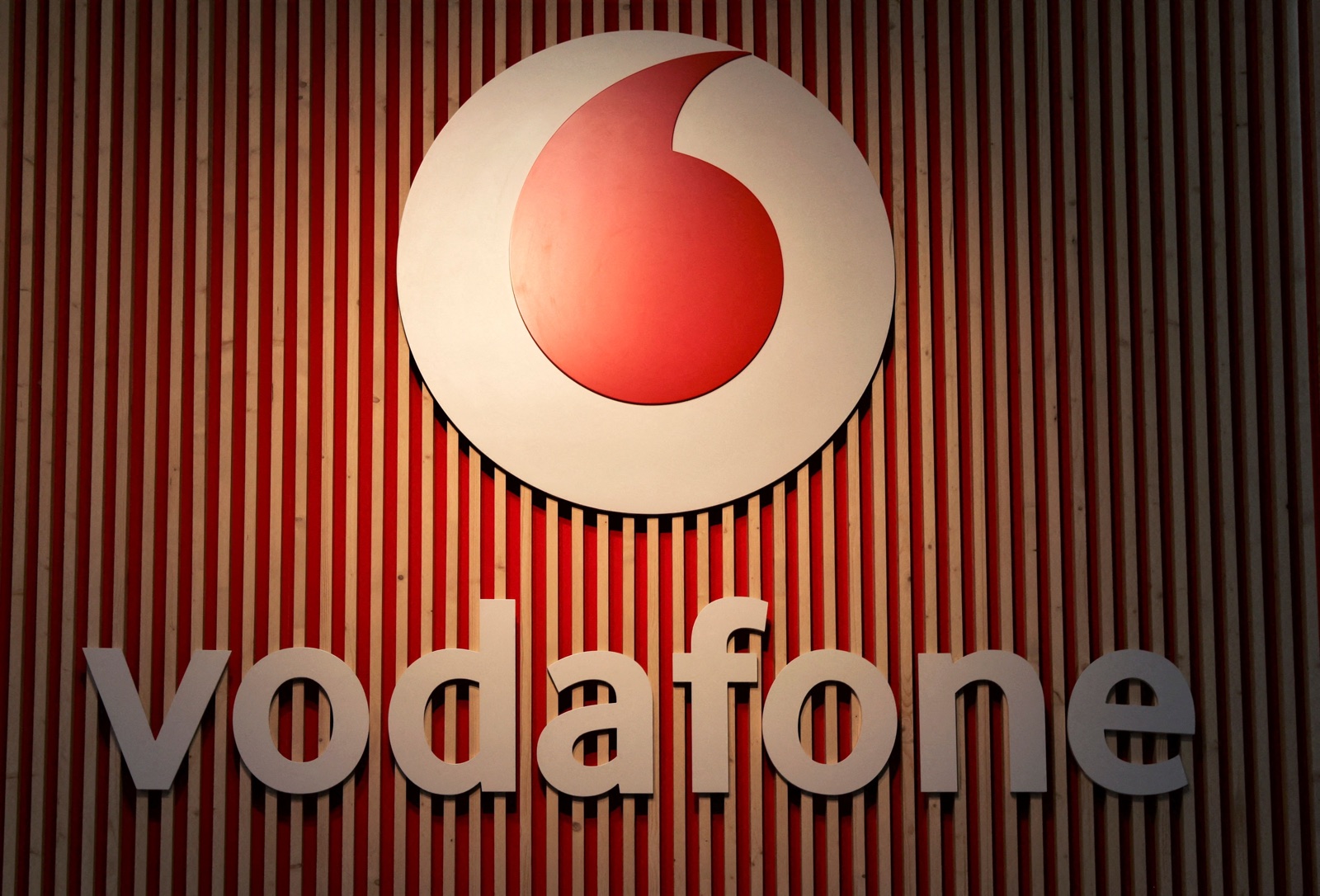
CAPITAL MARKETS-
Minority shareholders loath to part with Vodafone Egypt stakes: Vodacom is acquiring an additional 0.02% (49.5k shares) of Vodafone Egypt from minority shareholders for EUR 17.92 a piece after the subscription period on its offer closed yesterday, according to a bourse statement. The South African subsidiary of Vodafone Group had initially sought to purchase as much as 0.05% of the company (124.6k shares) from minority shareholders in tandem with acquiring the parent company’s 55% stake in December.
RETAIL –
Arafa Holding’s board of directors approved the establishment of a fully-owned Dubai-based arm yesterday with our old friend Mohamed Talaat Khalifa (LinkedIn) as its director, according to an EGX disclosure (pdf). No date has been announced for the opening of the Egyptian retailer’s branch in the UAE. Arafa recorded consolidated net sales of USD 165.9 mn in 9M 2022, up 38% from a year ago, according to a consolidated earnings release (pdf) published Sunday.
NBFS-
ValU makes customer support available over WhatsApp: EFG Hermes’ consumer finance arm ValU has partnered with Infobip to launch its WhatsApp Business Platform offering customer support via the app, according to a company press release. ValU customers will now be able to get responses to FAQs, as well as discounts, reminders, and other notifications over Whatsapp.
PLANET FINANCE
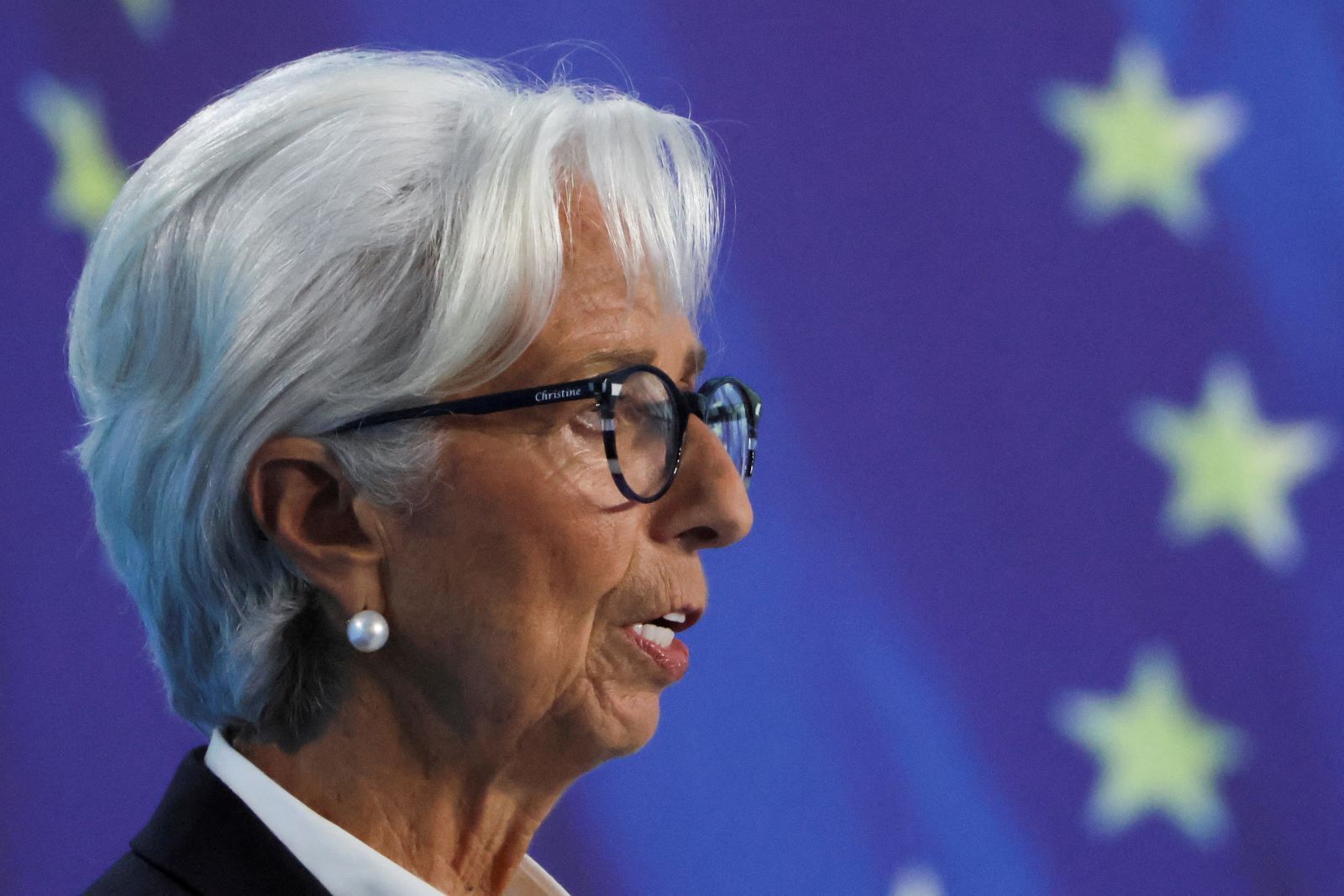
Slower rate hikes in Europe? Officials at the European Central Bank (ECB) are mulling a slower pace of rate hikes than the 50-basis point increases for February and March that ECB President Christine Lagarde penciled in last month, Bloomberg reports, citing unnamed bank officials it says have knowledge of the discussions. The ECB remains likely to stick to a 50-bps hike in February but support is gaining ground for a 25-point increase in March, said the officials. Cooler recent inflation data, falling natural gas prices, and hints from the US Federal Reserve that it could start to slow its tightening cycle are giving European policymakers more room to breathe. Like the US Fed, the ECB doesn’t want to be seen as going soft on inflation, but “steps may become smaller as necessary as we (ECB) find the level appropriate to bring the inflation down to 2%,” said board member Martins Kazaks.
Looks like some of Lagarde’s staff have doubts: More than 40% of 1.6k staff surveyed by the European central bank’s trade union have “no” or “low” trust in Lagarde and the rest of the ECB board to manage policy, while more than two-thirds said their trust had been damaged by recent developments on inflation and the failure of the ECB to raise their pay in line with it, Reuters reports
Bad times for investment banks as 4Q earnings roll in: Goldman Sachs’ earnings declined a staggering 67% y-o-y in 4Q 2022 to register USD 1.3 bn, the bank’s financials showed yesterday, with the news triggering a 6% fall in its shares. The drop came on the back of a fall in dealmaking, a decline in the revenues of the firm’s asset and wealth management, and rising costs. Goldman Sachs’ operating expenses shot up 11% y-o-y in 4Q 2022 while revenues dipped 16%.
Morgan Stanley was the relative standout: The firm’s shares closed up more than 6% yesterday after it reported (pdf) a smaller-than-expected 40% y-o-y slowdown in its 4Q 2022 earnings, which dipped to USD 2.2 bn. Its results were buoyed by higher wealth management revenues that helped the firm partly offset a sharp 49% decline in investment banking revenues to USD 1.25 bn.
The losses reflect a wider slowdown in investment banking last year, which has seen Wall Street banks slash their workforces and streamline operations. JPMorgan Chase, Bank of America, and Citigroup on Friday all reported 4Q investment banking revenues down more than 50% on the year before, the Financial Times reports. Dealmaking, which is the main source of revenue for investment banks, took a hit in 2022 at the hands of higher interest rates and a weakening global economy, Reuters notes.
|
|
EGX30 |
15,982 |
+0.9% (YTD: +9.5%) |
|
|
USD (CBE) |
Buy 29.48 |
Sell 29.62 |
|
|
USD at CIB |
Buy 29.53 |
Sell 29.63 |
|
|
Interest rates CBE |
16.25% deposit |
17.25% lending |
|
|
Tadawul |
10,683 |
-0.4% (YTD: +2.0%) |
|
|
ADX |
10,273 |
+0.1% (YTD: +0.6%) |
|
|
DFM |
3,358 |
+0.7% (YTD: +0.6%) |
|
|
S&P 500 |
3,991 |
-0.2% (YTD: +4.0%) |
|
|
FTSE 100 |
7,851 |
-0.1% (YTD: +5.4%) |
|
|
Euro Stoxx 50 |
4,174 |
+0.4% (YTD: +10.0%) |
|
|
Brent crude |
USD 86.66 |
+2.6% |
|
|
Natural gas (Nymex) |
USD 3.59 |
+4.9% |
|
|
Gold |
USD 1,909.90 |
-0.6% |
|
|
BTC |
USD 21,279 |
+0.4% (YTD: +29.1%) |
THE CLOSING BELL-
The EGX30 rose 0.9% at yesterday’s close on turnover of EGP 3.14 bn (85.7% above the 90-day average). Regional investors were net sellers. The index is up 9.5% YTD.
In the green: QNB Al Ahli (+5.7%), Ibnsina Pharma (+4.4%) and Heliopolis Housing (+4.4%).
In the red: Alexandria Containers and Cargo (-2.6%), Abu Qir Fertilizers (-2.0%) and Credit Agricole Egypt (-1.3%).
Asian markets are largely up in early trading this morning and futures suggest European markets will also open largely in the green. It’s a different story on Wall Street, where benchmark indices look set to open in the red later on today.
DIPLOMACY

Egyptian-Jordanian-Palestinian summit addresses heightened tensions in Israel-Palestine conflict: Palestinian affairs took center stage at a meeting yesterday in Cairo between President Abdel Fattah El Sisi, Jordanian King Abdullah II, and Palestinian President Mahmoud Abbas, according to a joint statement. The statement reiterated the three leaders’ support for a two-state solution to the conflict, as well as Jordanian and Egyptian support for Abbas.
A message to the new Israeli gov’t: The three leaders “confirmed the need to halt illegal unilateral Israeli measures that undermine the two-state solution and [chances] of achieving just and comprehensive peace,” including “settlements, confiscation of Palestinian lands, demolitions of homes, the displacement of Palestinians from their homes, the continuous Israeli raids into Palestinian cities, and the violation of the historical and legal status in Jerusalem and its sanctities.”
ICYMI- The meeting comes following a series of provocative moves by Israel’s new far-right government, which includes ministers that have advocated deporting Arabs and annexing the country’s illegal settlements in the West Bank.
The summit got coverage in Al Hayah Al Youm (watch, runtime: 2:13), and Ala Mas’ouleety (watch, runtime: 10:47.)

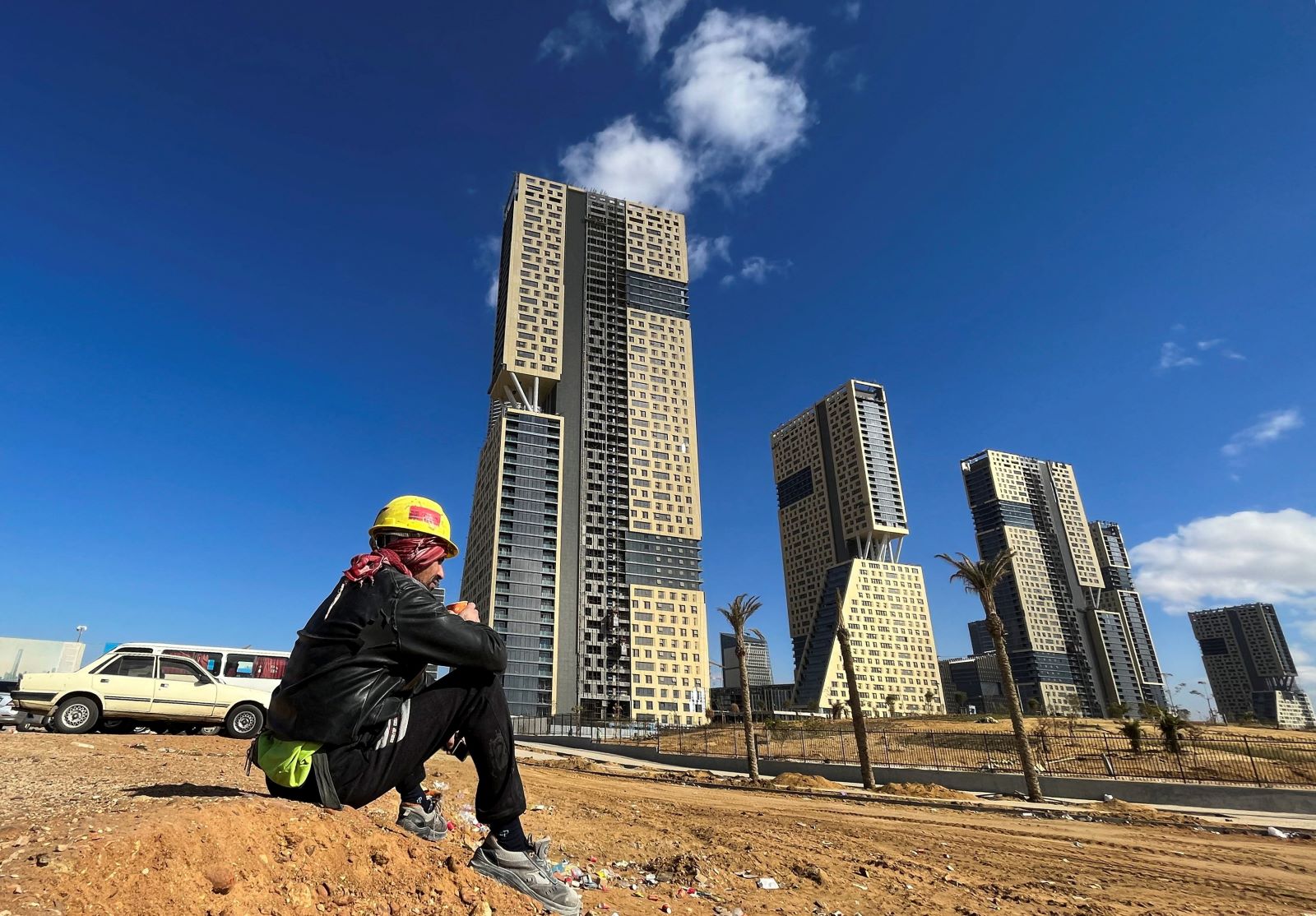
Will new amendments to the Contractors Compensation Act be enough to help builders out of a bind? Late last year, President Abdel Fattah El Sisi ratified amendments to the Contractors Compensation Act that allow builders who have suffered losses on state projects due to macroeconomic headwinds to receive compensation from the government. Although industry insiders have spoken favorably of the bill, which — along with a new set of regulations — is expected to help draw in some much needed liquidity into the sector, it's still unclear whether the bill will be a panacea for contractors struggling to keep up with rising costs.
A multi-pronged crisis has been brewing: The high cost of raw materials, previous import restrictions, EGP devaluation, and limited financing options have hammered the industry in recent months, head of the Egyptian Federation of Construction and Building Contractors Mohamed Sami Saad explained.
Contractors could see some EGP 40 bn in compensation: Given that the current headwinds are larger than those faced back in 2017 — when the government first introduced the act, which ultimately disbursed some EGP 20 bn in compensation — the upcoming round of compensation is expected to be double that figure, Saad explained. The bigger volume of government-led infrastructure projects in recent years — and their larger price tags — is another factor that is expected to drive up how much compensation will be dished out this time around.
There’s some concern among industry players we spoke to about how and when companies will be compensated. The Housing Ministry committee processing compensation claims needs to calculate compensation based on real average market prices of building materials, rather than the prices cited in statistics agency CAPMAS’ monthly bulletin, which tends to underestimate these materials’ prices, suggests Daker Abdellah, a federation board member.
The repayment schedule is also a concern: The Housing Ministry committee is currently in the process of combing through compensation claims to come up with payment estimates, but it’s unclear how long this process will take. Issuing payments to companies as soon as possible should be the committee’s primary objective, federation board member Mohamed Abdel Raouf told us. These timelines are a major sticking point for many contractors who have begun work on their contracts yet are reeling under the pressure of delayed payments.
The sooner compensation is doled out, the better: The longer it takes for companies to receive their payment the likelihood that problems with financing banks, suppliers and subcontractors will rise, Saad says. Even paying out a portion of the compensation companies are owed would be an effective measure to reduce some of their losses, Abdellah explained.
The amendments offer protections that could ease some of these concerns: Amendments to the contractors compensation law could bring some guarantees to companies working on projects that take less than six months to implement and will ensure that these firms receive financial compensation, Saad explained. The updated law will also ensure that projects affected by fluctuating building material prices during construction will be appropriately compensated for the increase in cost.
And it’ll likely apply for years to come: Unlike its original 2017 form, the amended law sets no timeframe for how long these new rules will be applicable, meaning that this compensation scheme will legally cover companies against macroeconomic turbulence down the line.
But there are still some changes to the law contractors would like to see: Contractors are willing to overlook compensation delays but want to introduce a clause to the new law stipulating that only companies with active contracts are eligible for compensation, Abdellah explained. The problem here is that many companies for whom work has long been suspended due to late payments and FX shortages have not seen their contracts renewed and could be at risk of being excluded from the compensation scheme.
A moratorium on late fees could also offer a big hand: Given the pressures contractors are currently facing, the government should also put late fees on pause for contractors working on national projects, Abdellah explained. Reimbursements are unlikely to cover the price difference in raw materials dues and the price tag of fines accrued by these companies for construction delays, Abdellah says. Many projects require imported building materials that are not locally available, but the recent FX shortage meant there’s not much these companies can do to speed up their construction timelines, Abdellah explained. The new law, in its current form, likely won’t be enough to cover contractors’ losses, he added.
Extensions on e-payments would be helpful: Extending the cycle for electronic payments to run on a 50-day cycle, instead of its current 30-day cycle, could also give contractors a major break, a source who spoke to us on the condition of anonymity said. Companies are on a monthly cycle for repaying loans, paying salaries and keeping up with operating expenses, so making e-payments fall out of sync with these commitments would make matters easier for companies, the source explained.
New pricing schemes for existing projects undergoing construction: According to many of the sources we spoke to, the astronomical increase in construction costs in recent years requires projects still under construction be re-priced. Projects need to be entirely reevaluated to find local alternatives for construction materials instead of relying on foreign models, Abdellah said.
Bringing in a new government entity could help drive down costs: Instead of government agencies relying on big budget consulting firms, a new authority tasked with setting rules and regulations for the construction of government buildings could be formed, Abdellah said.
Construction on national projects is on pause: All building and contracting work on national projects has recently been suspended, our insider source explained. The construction pause has been billed as late fees and therefore nullifies some companies’ ability to collect compensation.
The upcoming year will likely prove even more difficult for contractors: The government announced last week that spending on new national projects will be put on hold as the government restricts spending on all but essential ministries. The decision has contractors concerned about the limited prospects of making up for losses sustained in 2022, in the coming year, according to Abdel Raouf.
Your top infrastructure stories for the week:
- Abu Dhabi Ports eyes Suez Port: ADQ-owned Abu Dhabi Ports Company is reportedly in talks with the Madbouly government to take over the development and management of the Suez Port.
- Bids are coming in for cooking oil complexes: Five local and international consortiums have submitted offers to establish three cooking oil complexes with investments of up to USD 321 mn.
- Elsewedy signs Saudi solar contract: Elsewedy Electric for Transmission and Distribution signed a USD 176.1 mn turnkey contract to build a 300-MW solar power station for Saudi Arabia’s Al Ghazala Energy.
- Energy projects ringfenced from FX cutbacks: Oil Ministry projects are excluded from the government’s decision to ration FX spending, Minister Tarek El Molla said in an interview.
CALENDAR
JANUARY
January: Fuel pricing committee meets to decide quarterly fuel prices.
January: Infinity + Africa Finance Corporation to close acquisition of Lekela Power.
January: Global Auto to restart BMW assembly in Egypt.
16-20 January (Monday-Friday): Davos 2023.
25 January (Wednesday): 25 January revolution anniversary / Police Day.
26 January-6 February (Thursday-Monday): Cairo International Book Fair, Egypt International Exhibition Center.
26 January (Thursday): President El Sisi will visit India as “chief guest” at celebrations to mark the 74th anniversary of Indian independence.
26 January (Thursday): National holiday in observance of 25 January revolution anniversary / Police Day (TBC).
30 January-1 February (Monday-Wednesday): CI Capital’s Annual MENA Investor Conference 2023, Cairo, Egypt.
31 January (Tuesday): The IMF will release its World Economic Outlook Update.
FEBRUARY
1 February (Wednesday): Capricorn Energy will hold a vote on its merger with Israel’s NewMed.
2 February (Thursday): Central Bank of Egypt’s Monetary Policy Committee meeting.
11 February (Saturday): Second semester of 2022-2023 academic year begins for public universities.
13-15 February (Monday-Wednesday): The Egypt Petroleum Show (Egyps), Egypt International Exhibition Center, Cairo.
23-27 February (Thursday-Monday): Annual Business Women of Egypt’s Women for Success conference.
MARCH
March: 4Q2022 earnings season.
23 March (Wednesday): First day of Ramadan (TBC). Maghreb will be at 6:08pm CLT.
30 March (Thursday): Central Bank of Egypt’s Monetary Policy Committee meeting.
APRIL
1 April (Saturday): Deadline for banks to establish sustainability units.
10-16 April (Monday-Sunday): IMF / World Bank Spring Meetings, Marrakesh, Morocco.
16 April (Sunday): Coptic Easter
17 April (Monday): Sham El Nessim.
22 April (Saturday): Eid El Fitr (TBC).
25 April (Tuesday): Sinai Liberation Day.
27 April (Thursday): National holiday in observance of Sinai Liberation Day (TBC).
30 April (Sunday): Deadline for self-employed to register for e-invoicing.
30 April (Sunday): End of Mediterranean, Nile Delta oil + gas exploration tender.
Late April – 15 May: 1Q2023 earnings season.
MAY
1 May (Monday): Labor Day.
4 May (Thursday): National holiday in observance of Labor Day (TBC).
4 May (Thursday): IEF-IGU Ministerial Gas Forum, Cairo.
18 May (Thursday): Central Bank of Egypt’s Monetary Policy Committee meeting.
22-26 May (Monday-Friday): Egypt will host the African Development Bank (AfDB) annual meetings in Sharm El Sheikh.
JUNE
10 June (Saturday): Thanaweya Amma examinations begin.
19-21 June (Monday-Wednesday): Egypt Infrastructure and Water Expo debuts at the Egypt International Exhibition Center.
22 June (Thursday): Central Bank of Egypt’s Monetary Policy Committee meeting.
28 June-2 July (Wednesday-Sunday): Eid El Adha (TBC).
30 June (Friday): June 30 Revolution Day.
JULY
18 July (Tuesday): Islamic New Year.
20 July (Thursday): National holiday in observance of Islamic New Year (TBC).
23 July (Sunday): Revolution Day.
27 July (Thursday): National holiday in observance of Revolution Day.
Late July-14 August: 2Q2023 earnings season.
AUGUST
3 August (Thursday): Central Bank of Egypt’s Monetary Policy Committee meeting.
SEPTEMBER
21 September (Thursday): Central Bank of Egypt’s Monetary Policy Committee meeting.
26 September (Tuesday): Prophet Muhammad’s birthday (TBC).
28 September (Thursday): National holiday in observance of Prophet Muhammad’s birthday (TBC).
OCTOBER
6 October (Friday): Armed Forces Day.
Late October-14 November: 3Q2023 earnings season.
NOVEMBER
2 November (Thursday): Central Bank of Egypt’s Monetary Policy Committee meeting.
DECEMBER
21 December (Thursday): Central Bank of Egypt’s Monetary Policy Committee meeting.
EVENTS WITH NO SET DATE
2023: The inauguration of the Grand Egyptian Museum.
2023: Egypt will host the Asian Infrastructure Investment Bank’s Annual Meeting of the Board of Governors in 2023.
1Q 2023: Adnoc Distribution’s acquisition of 50% of TotalEnergies Egypt to close.
1Q 2023: Egypt + Qatar to launch joint business forum.
1Q 2023: FRA to introduce new rules for short selling.
1Q 2023: Internal trade database to launch.
Enterprise is a daily publication of Enterprise Ventures LLC, an Egyptian limited liability company (commercial register 83594), and a subsidiary of Inktank Communications. Summaries are intended for guidance only and are provided on an as-is basis; kindly refer to the source article in its original language prior to undertaking any action. Neither Enterprise Ventures nor its staff assume any responsibility or liability for the accuracy of the information contained in this publication, whether in the form of summaries or analysis. © 2022 Enterprise Ventures LLC.
Enterprise is available without charge thanks to the generous support of HSBC Egypt (tax ID: 204-901-715), the leading corporate and retail lender in Egypt; EFG Hermes (tax ID: 200-178-385), the leading financial services corporation in frontier emerging markets; SODIC (tax ID: 212-168-002), a leading Egyptian real estate developer; SomaBay (tax ID: 204-903-300), our Red Sea holiday partner; Infinity (tax ID: 474-939-359), the ultimate way to power cities, industries, and homes directly from nature right here in Egypt; CIRA (tax ID: 200-069-608), the leading providers of K-12 and higher level education in Egypt; Orascom Construction (tax ID: 229-988-806), the leading construction and engineering company building infrastructure in Egypt and abroad; Moharram & Partners (tax ID: 616-112-459), the leading public policy and government affairs partner; Palm Hills Developments (tax ID: 432-737-014), a leading developer of commercial and residential properties; Mashreq (tax ID: 204-898-862), the MENA region’s leading homegrown personal and digital bank; Industrial Development Group (IDG) (tax ID:266-965-253), the leading builder of industrial parks in Egypt; Hassan Allam Properties (tax ID: 553-096-567), one of Egypt’s most prominent and leading builders; and Saleh, Barsoum & Abdel Aziz (tax ID: 220-002-827), the leading audit, tax and accounting firm in Egypt.

